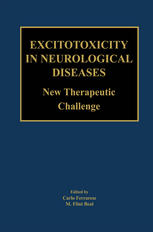

Most ebook files are in PDF format, so you can easily read them using various software such as Foxit Reader or directly on the Google Chrome browser.
Some ebook files are released by publishers in other formats such as .awz, .mobi, .epub, .fb2, etc. You may need to install specific software to read these formats on mobile/PC, such as Calibre.
Please read the tutorial at this link: https://ebookbell.com/faq
We offer FREE conversion to the popular formats you request; however, this may take some time. Therefore, right after payment, please email us, and we will try to provide the service as quickly as possible.
For some exceptional file formats or broken links (if any), please refrain from opening any disputes. Instead, email us first, and we will try to assist within a maximum of 6 hours.
EbookBell Team

4.8
24 reviewsIt can be reasonably anticipated that, over the next generations, the proportion of elderly people will remarkably increase and, with this, the number ofpersons suffering from acute (e.g. cerebral ischemia) or chronic neurodegenerative disorders. To date, approved drugs only alleviate the symptoms ofthese diseases (for instance, acetylcholinesterase inhibitors in Alzheimer disease and L-dopa and dopamine-agonists in Parkinson disease), while none seems to stop the progression of the degenerative processes underlying them. The development of effective preventive or protective therapies has been impeded by the limitations of our knowledge of the causes and the mechanisms by which neurons die in neurodegenerative disorders. Evidence accumulated in the past 20 years indicated that the major excitatory neurotransmitter glutamate may play a role as neurotoxin in several conditions. In particular, the glutamatergic system dysfunction seems to be an early event working as a common pathway in the pathogenesis ofa large number ofacute and chronic neurological disorders, in strict conjunction with other important mechanisms, such as oxidative stress and energetic failure, and probably triggered by different mechanisms in various diseases. In consideration of that, drug discovery efforts over the last decade have been focused on the search for drugs that either reduce glutamate synaptic levels or block its postsynaptic effects. Despite numerous reviews on basic mechanisms and clinical aspects ofthe excitotoxic phenomenon, so far no comprehensive book has covered the topic in all its complexity, starting from basic pharmacological mechanisms, to .animal models of diseases and finally to clinical pathogenic and therapeutic implications.